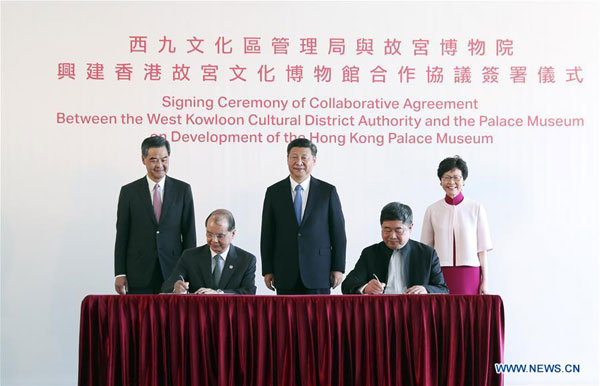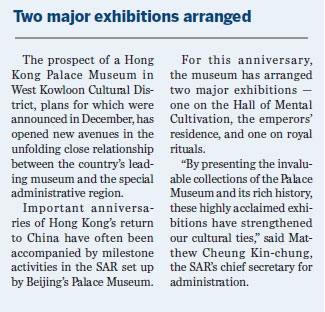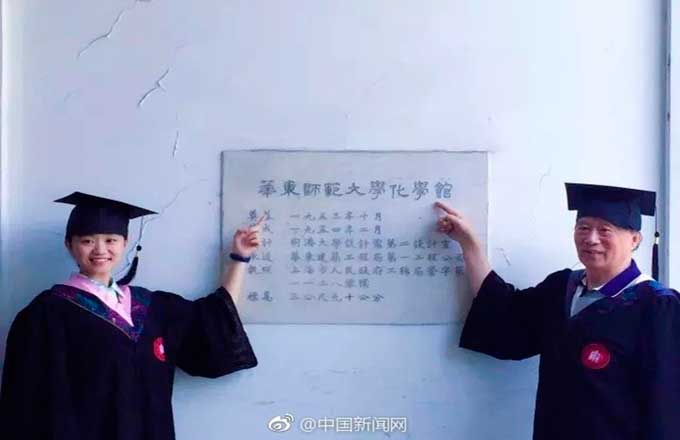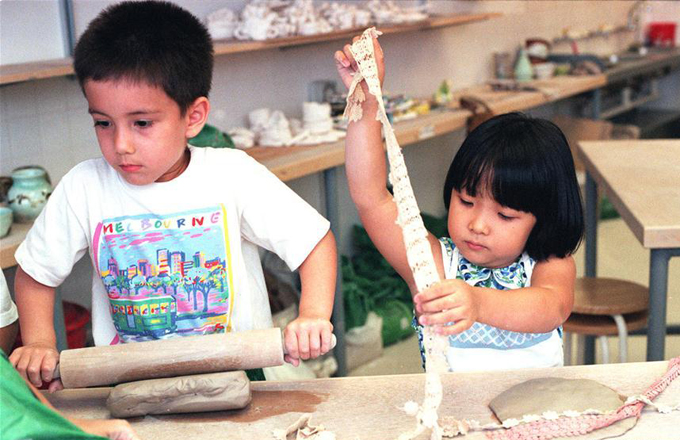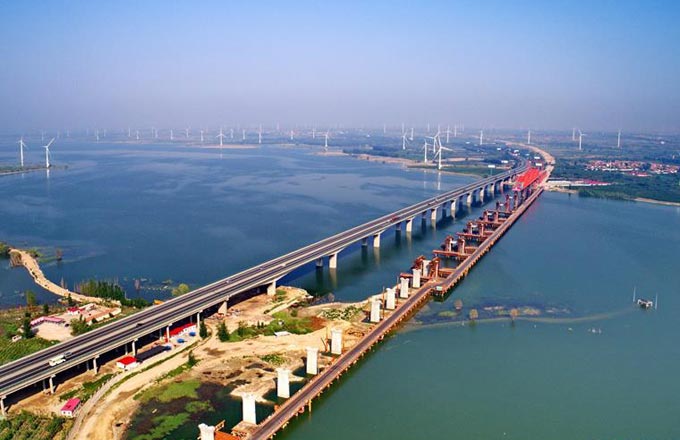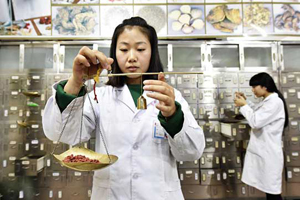Agreement signed for HK Palace Museum
President Xi Jinping witnessed the signing on Thursday of a cooperation agreement between the Hong Kong Special Administrative Region and Beijing's Palace Museum for the development of the Hong Kong Palace Museum.
The ceremony was held in the West Kowloon Cultural District on the first day of the president's three-day visit to Hong Kong.
Once the museum is built, treasures from Beijing's Palace Museum, also known as the Forbidden City, will be displayed there. Under the agreement, the cultural district and the Beijing museum will cooperate on exhibitions, staff training and cultural communication.
The agreement was signed by Matthew Cheung Kin-chung, Hong Kong's chief secretary for administration and chairman of the board of the West Kowloon Cultural District Authority, and Shan Jixiang, director of the Palace Museum.
Before the ceremony, Xi was briefed on the progress of the West Kowloon Cultural District, including site selection and building plans for the Hong Kong Palace Museum, as well as projects currently under construction.
The district is an important cultural project in Hong Kong. It envisions 17 cultural and art buildings, including the Hong Kong Palace Museum and the Xiqu Centre, which will promote traditional Chinese Opera. The opera center is expected to open late next year.
"The West Kowloon Cultural District has been an important project through several terms of the Hong Kong Special Administrative Region's government. It will provide a cultural and entertainment platform to benefit local people, while boosting Hong Kong's cultural and creative industry," Xi said.
It will also enrich the culture of Hong Kong as an international metropolis, enhancing the city's charm as a combination of Eastern and Western culture, he said.
He expressed his hope that Hong Kong would promote Chinese traditional culture and serve as a platform for communication between East and West, while also enhancing cultural exchanges with the mainland.
During his visit to the district, Xi listened to two local children performing Cantonese Opera and praised them for their excellence. He said he was "very glad to see how much you love Cantonese Opera".
"This shows that Hong Kong has no lack of successors in opera to maintain the vitality of traditional Chinese arts," Xi said.
Since Hong Kong's return to the motherland, the SAR government has made great efforts to protect Cantonese Opera, including setting up a special foundation and building the Xiqu Centre.
Also on Thursday, first lady Peng Liyuan visited Hong Kong's Yau Yat Chuen School, accompanied by Regina Leung Tong Ching-yee, wife of the SAR's Chief Executive.






